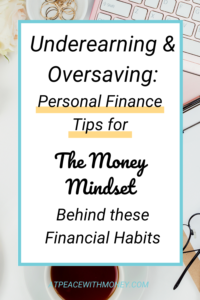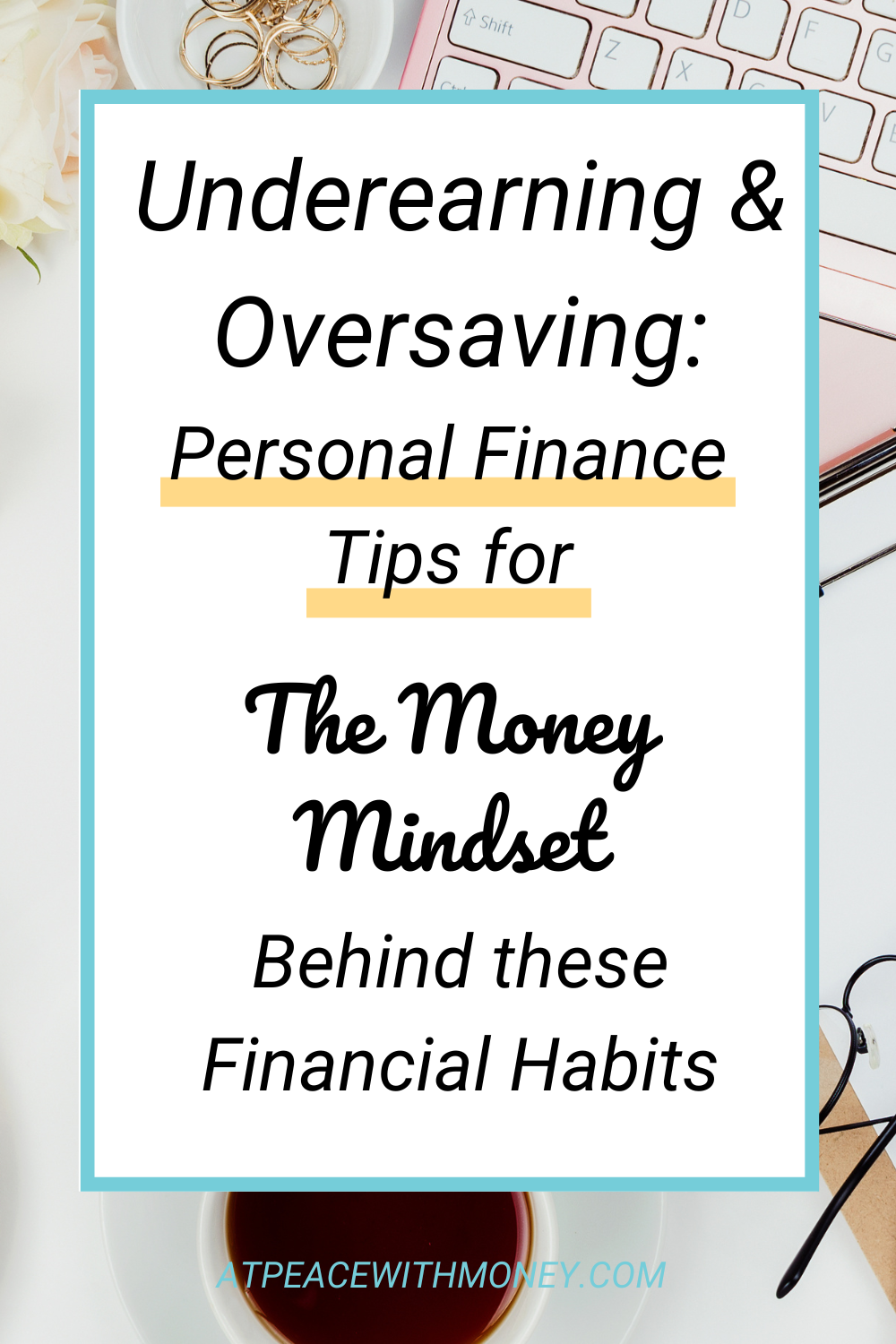Underearning and Oversaving: The Mindset Behind these Financial Habits

Are you saving too much money? Is your financial life bracketed by scarcity and insufficient funds? Do you identify as an oversaver or underearner? Then I invite you to take this post as an opportunity to explore your emotions and mindset which may be underlying these financial habits.
This post is inspired by Barbara Stanny’s excellent book, Secrets of Six Figure Women: Surprising Strategies to up Your Earnings and Change Your Life. Explore the ideas below and see if they’re helpful for you to explore your own financial behaviors.
Check In
Barbara interviews six-figure earners and contrasts them with women she dubs underearners. One of the contrasts that is ever present between the two is a difference in mindset. In her workshops with underearners, she uses a great exercise that I would encourage you to explore for yourself. She asks them to complete this sentence: People with money are _______________. If this as well as the title of this book bring up negative emotions, you will need to change this story before you are able to change your relationship with your earning potential.
I don’t believe that we all need to strive for a six figure income, or even that money is a measure of our success. But as business owners, if we are not able to support ourselves through our work, we will find it impossible to continue sharing the gifts that we have to offer.
Similarly, oversavers are hemmed in by their fear of scarcity. Looking at both of these financial behaviors, I am reminded of Lynn Twist’s ideas in her book, The Soul of Money. The author also remarks on how, when we let go of scarcity and stop going after things we don’t really want or need, this “frees up oceans of energy to make a difference with what you have. When you make a difference with what you have, it expands.”
Make the Shift
I believe that we need to shift to an abundance mindset. What do you think of when you think of the word abundance? I feel that this word includes many things: being grateful for what we have now, for what the future holds for us, for the gifts and talents we are able to share, the connections that we have to other people and the money that our society uses as a measure of exchange.
Including money in our desire for abundance makes it possible for us to increase our earnings and feel deserving of them. An abundance mindset also helps us to navigate the fear of scarcity that often guides oversaving.

My Mindset
I have been exploring my own money mindset recently. While I thought I had a positive relationship with money, I still found that I had some blocks as well. Because our society seems to measure a person’s value by their salary, it is easy to base your self-worth on your income. In our household, my husband earns the money that we base our lifestyle on. When I truly began exploring my mindset, I found that I was seeing my earnings as “insignificant” in comparison to his. When I began to separate the value that I deliver to my clients from my worthiness as an individual, my outlook on my potential impact also changed.
The Deciding Factor
The path to making this mindset shift towards abundance includes gratitude, affirmations about your worth, and a decision to make a change. Many of the six-figure women interviewed by Barbara started out with negative feelings around money, but they recognized that fact, made a decision to change and then put their new attitudes into practice. The fact that you are reading this blog about money already shows your willingness to change. That is a great start!











 It’s important to note that beyond income needs, there are many other reasons why we might find it difficult to put a cap on our work hours. Many people use work as a coping mechanism, or pride themselves on long hours. Being busy is not a badge of honor. In the long run, busying yourself with your business can lead to solopreneur burnout and a lack of fulfillment in your business. The more you choose to
It’s important to note that beyond income needs, there are many other reasons why we might find it difficult to put a cap on our work hours. Many people use work as a coping mechanism, or pride themselves on long hours. Being busy is not a badge of honor. In the long run, busying yourself with your business can lead to solopreneur burnout and a lack of fulfillment in your business. The more you choose to 



 What Do You Gain From This?
What Do You Gain From This?


 The path to making this mindset shift towards abundance includes gratitude, affirmations about your worth, and a decision to make a change.
The path to making this mindset shift towards abundance includes gratitude, affirmations about your worth, and a decision to make a change.

